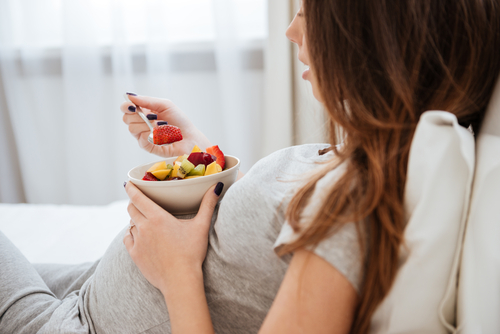Food choices during pregnancy have an immense effect on not only your own health and well-being but also on that of your unborn baby. Consuming a wide range of healthy food from all five food groups will ensure both mother and unborn receive essential vitamins such as folate, protein and calcium.
Protein sources to consider for snacking on include lean meats, fish, tofu and other soy products, eggs and nuts. Beans, peas and lentils offer extra folate, fiber, protein and iron benefits as well.
Protein
Protein is essential to the health and development of both mother and baby during gestation. Protein provides essential amino acids required for cell and tissue development as well as essential iron, zinc, folic acid, choline and other important nutrients for development and health during gestation.
Idealy, meeting our protein needs requires eating a wide range of protein-rich food sources such as lean meats (chicken and turkey), fish, eggs, nuts, beans, dals and pseudocelereals such as amaranth buckwheat and quinoa.
Protein shakes and powders are not regulated by the FDA and their safety has yet to be tested for pregnant women. Please consult with your physician prior to making this choice; protein can also be found in dairy such as yogurt and milk.
Vegetables
Vegetables provide your body with essential vitamins and minerals that benefit both you and your baby, while remaining low-kilojoule sources to ensure you maintain an appropriate weight gain rate.
Leafy green vegetables are packed with vitamin C and iron. In addition, they’re an excellent source of folate – perfect for smoothies, soups and omelets!
Milk is an excellent source of protein and calcium, helping strengthen both you and your baby’s bones and teeth. If drinking straight milk doesn’t appeal, try mixing it into fruit smoothies or freezing into popsicles instead!
Edamame beans, known for their protein and folate content, make an excellent protein-rich snack or addition to soups or salads, or they can even be sprinkled over whole grain toast for breakfast!
Fruits
Fruits make an excellent addition to a pregnancy diet as they are low in fat while providing essential nutrients. A banana contains folate, vitamin C and potassium, all essential for gestation. Folic acid helps protect neural tube defects; vitamin B6 aids nausea relief during early gestation; while potassium soothes leg cramps.
Reach for at least two servings of fruit and five of vegetables every day, whether mixing berries with yogurt for breakfast or adding slices to salads and sandwiches. When possible, opt for organic options so as not to expose your baby to harmful pesticides.
Dairy
Milk products like cheese, yogurt and cottage cheese provide essential nutrition to babies and toddlers, including calcium, vitamin D, protein phosphorus and iron. If lactose intolerant is an issue for you, try switching to products from A2 Milk or Fairlife which contain enzymes which break down lactose for you.
Consume two to five serves of fruits and vegetables daily, choosing varieties with varied colors. Choose a selection of whole grains including beans or legumes (chickpeas, lentils, peas and soybeans) along with nuts and seeds as fibre-rich sources of nourishment. Incorporate seafood options that are low in mercury as well as eggs and tofu into your daily meal plan.
Oils and Fats
Eating a well-balanced diet containing whole grains, lean proteins, fruits and vegetables, dairy products, healthy fats and beneficial herbs such as folate is crucial during gestation and can provide essential sources of folate, calcium, iron and Vitamin D.
Folic acid is essential to the development of both brain and spinal cord structures in babies, and helps protect them against neural tube defects like spina bifida. Therefore, women are advised to begin supplementing with enough folic acid prior to conception.
Fish is an excellent source of omega-3 fatty acids, which are vitally important for developing baby’s eye and brain health. However, it is essential to select low mercury fish varieties as too much mercury exposure could harm fetal development.
Snacks
Pregnancy cravings may strike more often than usual, making nutrient-rich snacks all the more necessary to maintaining energy levels and staving off nausea, headaches and irritability.
Try hummus and whole wheat crackers for protein-packed snack options packed with iron, folate and magnesium. Edamame also boasts protein and folic acid benefits!
Nut butter provides heart-healthy fats and protein, while fiber-rich apples or other firm fruit add additional fiber. Just beware to stay clear of unpasteurized cheeses which could contain listeria bacteria!


